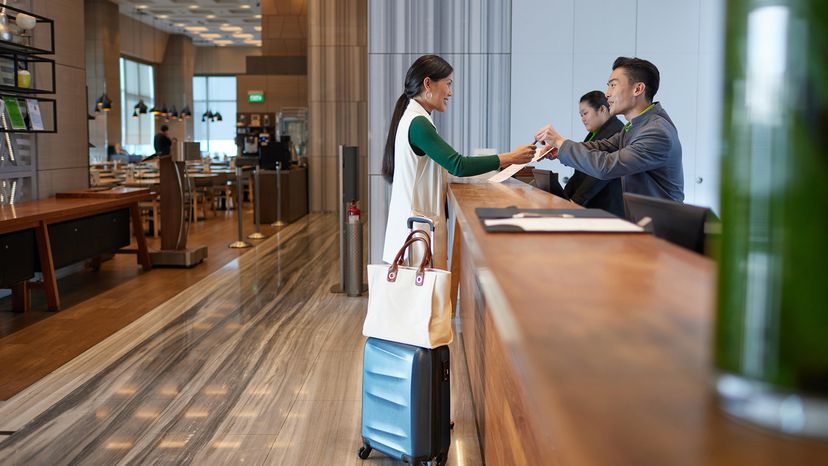One of the most distinct differences between hotels and motels is the amount of amenities offered to guests. Even a boutique hotel or bed-and-breakfast will offer more perks than motels, but that is due to differing business models.
Motels offer basic amenities and short-term lodging options for on-the-go clientele, while hotel customers expect a memorable experience when they stay. By sheer size alone, hotel chains can set themselves apart by allowing guests easy access to a broad range of facilities, including fitness centers, swimming pools, conference rooms, restaurants and pet-friendly rooms.
Fitness Centers
Hotels often offer fitness centers to provide their health-conscious clientele with the basics to work up a sweat and stick to their exercise regimen during their stay.
A typical hotel fitness center may include treadmills, free weights, yoga mats and accessories. More extravagant fitness centers may offer resort-like amenities such as steam rooms, saunas and indoor swimming pools.
Swimming Pools
A swimming pool is one of those amenities that causes confusion in the hotel vs. motel debate. A nice motel may have an outdoor swimming pool or hot tub on par with one you'd find at bargain hotels.
However, hotels tend to have indoor swimming pools, due to their larger size, while smaller motels don't have the space for more amenities along these lines.
Conference Rooms
Conference rooms are a game-changer for hotels. By providing a space where business travelers can eat, drink, sleep and meet up with their colleagues under one roof, hotels become the perfect destination for conventions and large professional events.
Business travelers also require reliable high-speed Wi-Fi that many motel accommodations may be unable to provide.
Restaurants and Hotel Room Service
A major difference between a hotel and a motel is many hotels offer restaurants to entertain guests and provide them with several culinary options to keep them well-fed during their stay. Guests can either grab a drink at the bar, lounge in the intimate atmosphere of the dining hall, or order room service directly to their rooms.
These same hotels will often serve food in the mornings with a wide range of free breakfast items and a la carte options.
